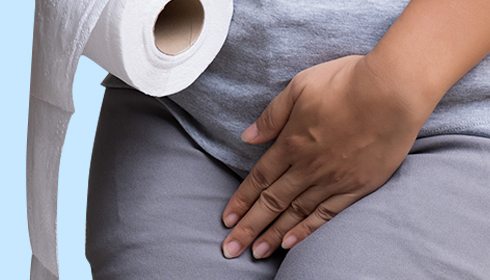
Uncontrolled Peeing Tied to Heart Disease Risk in Women, Finds New Study
In a surprising study based on data from over 20,000 women, researchers discovered a clear correlation between urine incontinence and cardiovascular disease (CVD) in women—a finding that could change how clinicians assess risk in female patients.
Urinary incontinence, or the uncontrolled flow of urine, is sometimes ignored as a painful but minor condition associated with ageing or childbirth. However, this study, led by Lisa VanWiel, suggests that it could be a sign of more serious health issues.
VanWiel, who recently completed her doctorate at the University of Iowa and is now an assistant professor at the University of Wisconsin-La Crosse, collaborated with a multi-institutional team to investigate whether women suffering from urinary incontinence were less physically active and whether this decreased activity contributed to heart disease.
Surprisingly, women who reported incontinence were just as active as those without the issue. Nonetheless, they had an increased risk of developing critical risk factors for heart disease, such as excessive cholesterol levels, type 2 diabetes, and stroke.
The study highlights a frequent but under-discussed health risk. Depending on the study, urine incontinence affects 38% to 60% of women, especially those over the age of 50. Despite its prevalence, many women are reluctant to discuss it, including with doctors.
"This study highlights that urinary incontinence is more than a quality-of-life concern — it's a potential indicator of systemic health problems," according to the investigators.
VanWiel and her team conducted the study by reviewing two years of medical information from the Hartford HealthCare system in Connecticut. Of the more than 20,000 women studied, around 5.4% reported urine incontinence using a questionnaire. All participants were asked to describe their degree of physical exercise.
While it was predicted that women with incontinence would avoid physical exercise due to discomfort or humiliation, this notion was not supported. Both groups reported similar levels of physical exercise.
The relevance comes from what did differ: the prevalence of cardiovascular disease indicators. Women with incontinence had a higher incidence of diseases that put strain on the heart and blood vessels. The authors found the pattern clear enough to recommend routine screening for both illnesses.
"Women should be screened for incontinence regularly, as it may contribute to CVD risk, and women with CVD risk factors should be screened for undiagnosed incontinence," the study's authors wrote.
Cardiovascular disease remains the biggest cause of mortality for women worldwide. Blood pressure, family history, cholesterol levels, and smoking are common indicators used in risk assessments. However, this study implies that urine incontinence may need to be added to the list, particularly in women.
Though the study did not uncover a cause-and-effect relationship, the association is strong enough to warrant further examination. According to the researchers, similar physiological mechanisms, such as changes in pelvic floor muscle function, hormone levels, or systemic inflammation, could influence both urine incontinence and cardiovascular issues.
The findings also show an opportunity to incorporate women's reproductive and cardiovascular health into clinical care. For example, gynaecologists who frequently see patients with incontinence should work more closely with cardiologists to ensure that early indicators of systemic illness are not missed.
Dr Kara Whitaker, VanWiel's mentor and co-author, emphasised the bigger picture: "It's not enough to address urine incontinence as a single condition. We must understand how it interacts with other aspects of women's health, particularly those that pose a life-threatening risk."
The study also shows that there should be a cultural shift in how people perceive urine incontinence. Rather than being viewed as an unavoidable component of ageing or a personal inconvenience, it may be time to consider it a real health indication.
Notably, the study was undertaken without external support, allowing for a degree of impartiality in its findings. Other collaborators included researchers from Hartford Hospital and the University of Iowa, adding to the clinical rigour of the findings.
The research team is urging for more long-term trials to determine if incontinence causes cardiovascular harm or simply coexists with it. Regardless, the signal is too loud to ignore.
This study provides a new perspective on women's health by framing urinary incontinence as more than just an annoying problem, taking into account its links to major disorders such as stroke and diabetes.